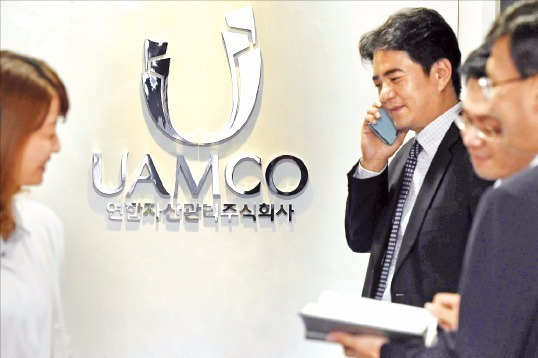South Korean non-performing loan (NPL) managers are increasing fundraising through corporate debt issuance given an outbreak of bad loans amid higher-for-longer rates and domestic real estate project loan defaults.
Korea’s top bank-owned NPL managers have issued 1.44 trillion won ($1.1 billion) worth of public debts so far this year, receiving 5.69 trillion won worth of subscriptions from institutional investors, according to Financial Supervisory Service (FSS) data on Tuesday.
The NPL investors are seeking ample liquidity as local bad loans are likely to swell further as more construction firms are expected to restructure their real estate projects amid the prolonged market slump.
The value of NPLs sold to major bank units reached 5.5 trillion won last year, up 126% from a year earlier, according to credit assessment agency Korea Ratings. Some 1.7 trillion won worth of NPLs were sold in the first quarter of this year.
“The NPL market size will continue to expand this year although the growth could slow,” said Korea Ratings analyst Park Kwang-sik. “NPL investors need large-scale fundraising to keep their positions in the market,” added Park.
UAMCO, an NPL manager backed by eight Korean major banks including Kookmin Bank, Shinhan Bank, NongHyup Bank and state-run Korea Development Bank (KDB) and the Export-Import Bank of Korea (KEXIM), has decided to issue 500 billion won worth of corporate debt on June 3, double the initially planned amount, as it received 1.6 trillion won worth subscriptions in book building.
Hana Bank’s NPL management unit Hana F&I held book building on Tuesday for its 200 billion won debt issuance, following the sale of bonds worth 150 billion won in February.
Kiwoom F&I Co., a distressed debt unit of Kiwoom Securities Corp., received 137 billion won worth of subscriptions on May 22 for its 50 billion won bond sale. The NPL manager will issue the bonds on May 30.
The loan management firms are seeking to extend their debt maturity by selling corporate bonds, according to banking industry sources. The firms, which have primarily focused on selling short-term debts such as commercial paper, aim for long-term maturity with the new bond issues, sources added.
Write to Hyun-Ju Jang at
blacksea@hankyung.com
Jihyun Kim edited this article.




